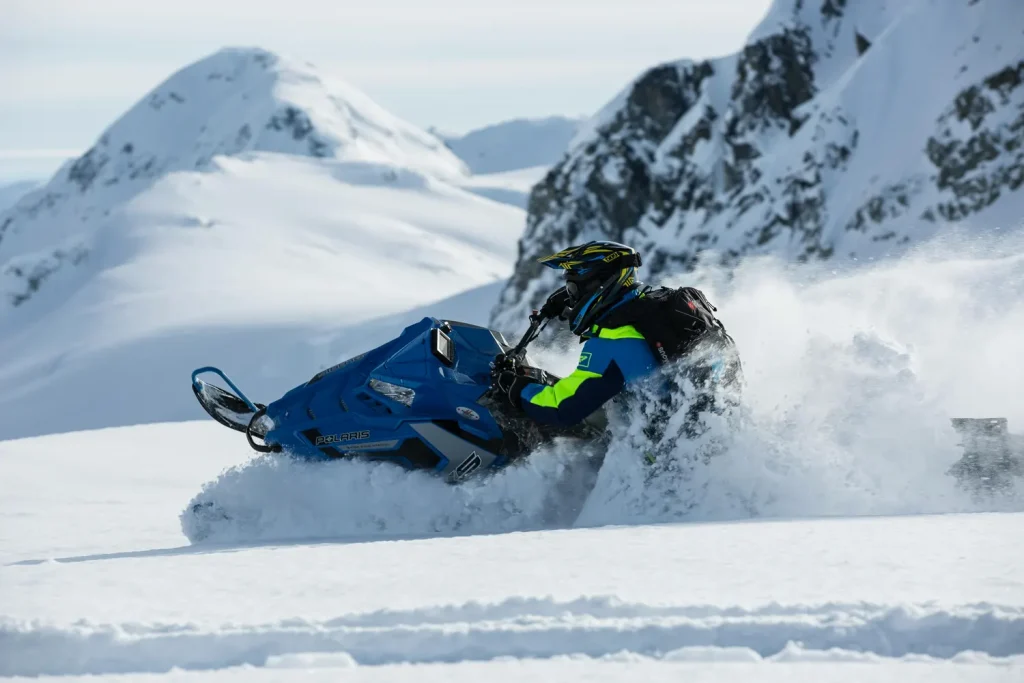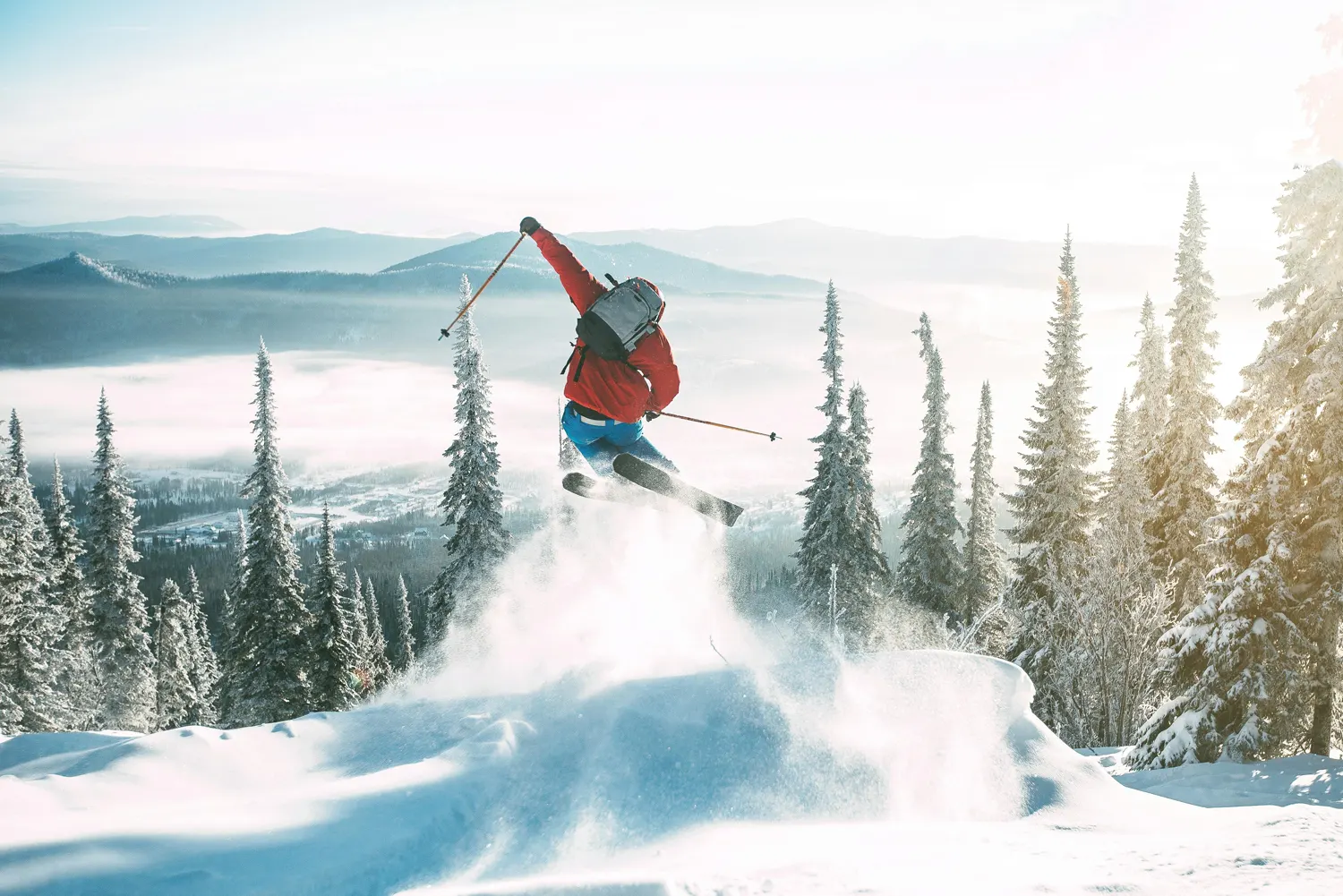Winter Sports Insurance: Can You Really Get Covered for Backcountry Skiing?
You love the thrill of backcountry skiing, snowboarding, or snowmobiling, but does that mean you can’t get proper insurance coverage? Many Canadian winter sports enthusiasts assume their passion for extreme activities automatically rules them out of winter sports insurance coverage. This assumption isn’t quite right, though. Adventure seekers across Canada can still find insurance options, even when they regularly tackle challenging terrain.
If you’re someone who spends weekends carving through the powder fields of Jasper, Whistler, Pemberton, or Revelstoke, your insurance concerns make sense. Backcountry skiing and other high-risk activities will likely affect your premiums. But simplified life insurance has become a practical option for Canadians who enjoy extreme sports like rock climbing, ice climbing, and backcountry skiing.
You don’t have to give up those epic powder days to get covered.
Understanding how insurance works for winter sports enthusiasts means you can keep pursuing your passion while protecting what matters most. This guide will show you exactly how Canadians can secure proper insurance protection without abandoning their backcountry skiing adventures.
The thrill and risk of backcountry skiing
Backcountry skiing in Canada has exploded over the past twenty years. Places like Rogers Pass that used to sit empty on weekends now see packed car parks even during the week. The transformation has been remarkable.
Why Canadians love backcountry skiing
Canadian backcountry terrain offers something special for powder seekers. The mountains of British Columbia and Alberta deliver powder quality that rivals Alaska or Japan, but with much easier access. The cold, dry snowpack creates that perfect light powder (though it stays weak and unstable through early winter—December and January).
Canada also has an impressive network of backcountry huts, with world-class lodging options throughout British Columbia. Many skiers have fallen so hard for backcountry that they’ve given up resort skiing entirely. You can see this passion reflected in the numbers too—backcountry ski boot sales jumped 27% in recent years.
Popular spots: Jasper, Pemberton, and more
Most of Canada’s premier backcountry destinations sit in the western provinces:
Rogers Pass – Everything a backcountry skier wants: massive vertical, deep powder, and endless exploration
Pemberton – Pristine powder with breathtaking alpine views and terrain for every skill level
Jasper National Park – Options range from easy day tours to long multi-day glacial traverses
Revelstoke – Incredible terrain with fantastic glade skiing and steep couloirs
The Kootenays (Nelson, Fernie, Kimberley) – Deep powder, varied terrain, and less crowded than coastal mountains
Vancouver Island – Remote alpine routes, rugged peaks, and scenic backcountry lines
Whistler and Blackcomb offer excellent backcountry access too, especially for beginners venturing beyond resort boundaries.
Real risks that come with the adventure
Backcountry activities come with real dangers. Across Canada and the United States, serious accidents and fatalities in backcountry skiing, snowboarding, and other alpine sports happen every season, reminding participants to respect the risks and plan carefully.
Beyond the numbers, backcountry skiing presents serious hazards. Avalanches remain the biggest threat, particularly given Canada’s typically unstable snowpack. Weather can shift without warning—temperatures can drop to -40 degrees Celsius even in March.
Human factors create danger too. Group dynamics and poor decision-making can be just as deadly as bad snow conditions. Many newcomers lack proper training and don’t understand backcountry risks, which can lead to life-threatening situations.
Proper preparation matters. You need avalanche safety gear (beacon, probe, shovel), you need to check forecasts religiously, and you need to understand terrain ratings. Cell coverage is usually unreliable in remote areas, so backup emergency communication is essential.
Can you really get life insurance for it?
Many adventurous Canadians think their love for winter thrills means they can’t get life insurance. The reality isn’t that simple. Life insurance for backcountry skiers does exist, but it comes with considerations you need to understand.
What insurers consider extreme sports
Insurance companies look at extreme sports as activities that significantly increase your risk of injury or death. They typically flag sports that involve:
Significant heights (skydiving, base jumping)
High speeds (car racing, jet skiing)
Hazardous environments (scuba diving, whitewater rafting)
Combat elements (martial arts)
Challenging winter conditions (backcountry skiing, snowmobiling)
From their perspective, these activities make claims more likely, so they scrutinise applications more carefully.
How backcountry skiing fits into that category
Backcountry skiing sits squarely in most insurers’ high-risk category. When they’re evaluating your application, insurance companies will assess:
How often you participate
Your experience level and any certifications you hold
Whether you use proper safety equipment
The specific terrain you tackle (heli-skiing carries higher risk than recreational resort skiing)
If you’re regularly exploring the backcountry around Jasper, Pemberton, or other Canadian destinations, this classification matters. Insurance underwriters review each backcountry skiing application individually. You’ll typically see one of three outcomes: approval at standard rates, approval with higher premiums, or approval with specific exclusions.
Examples of accepted and excluded activities
Most insurers will cover recreational snow sports like resort skiing without issue. Some specialised providers go further and offer coverage for activities that others exclude entirely. Companies like Canada Protection Plan and Affinity Life have options designed specifically for extreme sports enthusiasts.
However, many standard policies exclude:
Heli-skiing and other particularly dangerous winter sports
Backcountry activities in remote locations
Professional-level competition
Here’s something critical to remember: not disclosing your backcountry skiing could void your coverage completely. Honesty during the application process isn’t optional.
For Canadian winter sports enthusiasts, specialised no-medical and simplified issue life insurance often provides the most practical solution, offering protection without extensive medical examinations or exclusions for adventure activities.

What to expect during the application process
Getting life insurance as a backcountry skiing enthusiast means you’ll face more questions than someone who sticks to resort slopes. Understanding what insurers want to know helps you prepare for the process, whether you’re planning adventures in Jasper, Whistler, or Pemberton’s backcountry terrain.
Questions insurers will ask
Insurance companies want detailed information about your winter sports activities. You can expect questions about:
Types of snow sports you participate in (cross-country, downhill, heliskiing)
Your level of expertise (beginner, intermediate, expert)
Where you ski (established trails versus backcountry terrain)
Safety equipment you carry (avalanche beacons, GPS, shovels)
Whether you use professional guides or tour operators
Frequency of participation (days per season)
These questions aren’t meant to discourage you. They help underwriters understand your specific risk profile.
Life Insurance That Matches Your Adventure
Backcountry skiing across Canada’s powder fields brings unmatched excitement, but these adventures carry real risks that demand proper insurance protection. Many skiers believe their passion automatically rules them out of coverage. This isn’t the case.
Being honest about your skiing habits, locations, and frequency matters during the application process. Misrepresentation could void your coverage entirely, leaving your family without the financial support they’d need.
Simplified issue life insurance offers a practical path forward for those who regularly explore Jasper, Whistler, or Revelstoke’s terrain. These policies involve minimal health questions rather than extensive medical examinations. No-medical life insurance takes this a step further, eliminating medical evaluations altogether.
Canadian adventurers don’t have to choose between their passion and protecting their loved ones.
Working with brokers who understand high-risk activities often produces the best results. These professionals know the nuances of winter sports coverage and can guide you toward policies that fit your adventurous lifestyle without excessive costs or restrictive exclusions.
Think of insurance as essential safety equipment—just as important as your avalanche beacon or proper training. The right policy provides peace of mind and financial security, letting you fully embrace Canada’s world-class winter terrain while knowing your family stays protected no matter what happens on the slopes.
At Maple Bay, we understand that your love for backcountry skiing shouldn’t prevent you from getting proper life insurance coverage. We work with multiple insurance providers to find policies that accommodate winter sports enthusiasts, helping you secure the protection your family needs while you pursue your passion for the powder.

